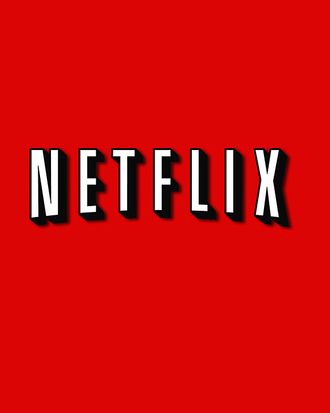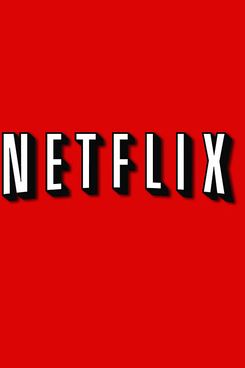

Remember the joy you felt when you canceled your pricey cable subscription and started devouring everything you could on Netflix? The Powers That Be in TV Land are getting pissed off about your little cord-cutting tricks, and they’re starting to fight back. Yesterday saw a two-pronged slap in the face for those who would try to reduce their TV-and-movie budget to as little as possible, and both shots involved Netflix, the heretofore beloved company known for its little red envelopes of cinematic joy. First, the company finally implemented its controversial price hike that upped rates by as much as 60 percent, making subscribers pay separate fees for physical DVD delivery and online streaming (though at a top rate of $16 for both, a Netflix subscription still costs less than two movie tickets). Then Starz, the pay cable channel best known for Spartacus, moved to deny Netflix subscribers streaming access to the more than 1,000 Sony and Disney movies it currently holds pay-cable rights to; once the current Starz-Netflix deal expires next March, there’ll be a lot of big movie titles you won’t be able to watch on a whim (good-bye, Toy Story 3). A Twitter search of “Netflix,” “cancelled”, and “good-bye” reveals the predictable backlash, but those up in arms might want to pause a beat.
For one thing, it’s not that Netflix or Starz don’t want you to be able to watch video through your Internet connection. Indeed, Netflix’s business model is now almost entirely built around streaming video, with DVD mailings increasingly an afterthought. What both companies — and plenty of studios and networks — have a problem with is the idea that Joe Consumer should be able to access their content at rates dramatically lower than what you used to pay back in the dark ages of, say, 2005 — you know, when you subscribed to a couple of premium movie channels, bought full seasons of TV shows at Best Buy, and rented a new release at Blockbuster every other Friday night. While you might like the idea of paying less than $10 bucks a month for an all-you-can-watch video diet, Hollywood saw what happened when the music business lost control of its content. It does not want to go down the same road.
Look at the statement Starz issued yesterday when it pulled out of Netflix: It said it was acting to “protect the premium nature of our brand by preserving the appropriate pricing and packaging of our exclusive and highly valuable content.” In other words, Starz suits didn’t think the money Netflix was offering to renew its deal (perhaps as much as $300 million, per the Los Angeles Times) was enough to offset the potential subscriber loss from cable customers who wised up and realized it made no sense to keep paying up to $15 per month for Starz on cable when they could get virtually the same content, and lots more, via an $8 Netflix Instant subscription. HBO, the dominant pay cable channel, clearly thinks this way. It’s never been on Netflix and instead has been sinking serious cash into hyping its HBO Go service, which lets anyone with an HBO subscription stream virtually anything that’s ever been on the channel.
Some media reports suggest Starz is bluffing and just wants to get Netflix to up its offer. Perhaps: Chris Albrecht, the former HBO head who now runs Starz, is a consummate Hollywood deal-maker always game for a bold move in a negotiation (the man green-lit The Sopranos and seems to have learned a bit from the characters on that show). If so, however, Netflix boss Reed Hastings doesn’t seem concerned. He quickly issued a counter-statement saying hardly anyone was watching Starz content on Netflix (just 8 percent of all streams) and that he couldn’t wait to reinvest the money Netflix won’t be giving to Starz on new content, à la Netflix’s upcoming original Kevin Spacey series House of Cards. We talked to a top talent agent who says showrunners are salivating at the prospect of having Netflix step up to finance pet projects, and predicted Cards would be just the first of many originals funded by the company.
But back to the idea of how lovers of random movies and classic TV shows are being affected by all this Hollywood posturing. If you’re annoyed by the Netflix price hike, consider a July report (on CNN.com) that quoted a media analyst predicting that by the end of next year, the price Netflix pays to license content from studios and networks will soar from around $180 million now to nearly $2 billion. Another analyst, Atul Bagga of ThinkEquity, told the site, “Studios are starting to put their foot down. They weren’t paying attention to streaming at all, but now they see an opportunity to monetize. And they’re going to take it.” And you, in turn, are going to have to pay. Hollywood greed? Yes, though considering how much money they used to dependably get from DVD sales and rental chains that they’re no longer getting, they’re just trying to crawl their way back to preexisting base levels of greed. But it’s also clear the movie and TV businesses are trying to learn from the music industry’s many, many mistakes.
Even though Steve Jobs initially seemed like a savior to music types when he offered them the chance to stem illegal pirating by making people once again pay for music via iTunes, eventually record companies grew annoyed when Apple became something of a monopoly for music lovers still willing to pay. Others, including Amazon, have tried to compete with iTunes (and still are: Have you met Spotify?), but iTunes became so big that it could demand a big cut of the revenue from digital sales of music. Hollywood does not want to let Netflix get that powerful, which is why it’s supporting other streaming services (Hulu Plus) and launching its own storefronts to deliver content (HBO Go). And because the studios and networks are getting tough (or, if you prefer, clever), it’s likely consumers will see the cost they pay to get streaming content go up — or that they’ll have to hang on to their current cable subscriptions, with streaming access a bonus.
This all sounds ominous for Netflix. The drama of the last few weeks has clearly had an impact on the company’s almost Apple-like image with consumers, and its stock price has suffered: Shares are worth nearly one third what they were before the price hike and they were down on early trading Friday by another 8 percent in reaction to the Starz blowup. But not everyone thinks the company is doomed. Mogul Mark Cuban, who owns both the Dallas Mavericks and HDNet, tweeted his support of Netflix last night and today argued losing Starz wasn’t a big deal. He noted that Netflix still has a very wide array of content; we’d add that its being the first big entrant into the streaming marketplace, like iTunes and legal music sales, makes a big difference, too. The move into original content, like House of Cards, could also help. It’s reminiscent of what happened back in 2007 when Showtime couldn’t come to an agreement with Paramount and some smaller studios over a new deal for movies: Some experts predicted Showtime’s quick demise; instead, the network just upped their original-programming output and are surviving quite nicely, thank you very much.
Plus, eight bucks for all you can stream is still outrageously affordable, particularly compared to other forms of media ($10 for a single album, nearly $100 for a concert or play). Yes, you might not be able to get everything you want, but the selection will still be huge. And in the same way you used to always be able to find something to watch when you aimlessly flicked up and down the cable dial while vegging out on your sofa, you’ll likely be able to find something to make your eyeballs happy most of the time on your iPad. It’s faster than bit-torrenting, and only eight dollars more expensive.




